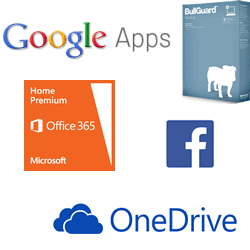What is Cloud Computing?
Thursday, April 3rd, 2014
Cloud – it’s been a big buzz word in the computing world for a few years now. But what does it mean and do you need it?

Basically, Cloud Computing is where you use software, services or storage through your PC, laptop, tablet or mobile device and that software or storage is not local to your device or network but accessed via the Internet.
Many people have probably been using this for some time without even realising it! If you access you email through a web site rather than downloading it with an application like Outlook then that can be classed as Cloud Computing. If you use DropBox, GoogleApps, Facebook, Twitter – they are all effectively Cloud services or solutions because you are storing or accessing your information via a server and network somewhere else in the World.
As time goes on, more and more applications and solutions are turning to the Cloud to offer customers greater functionality, storage and applications with the customer having to invest in expensive hardware or software locally. As long as you have an Internet connection then you can generally access these services and files.

Is it safe? You need to treat Cloud Computing and the Internet with care. At the end of the day, if you are using a cloud-based back up service or storing your data in GoogleApps, DropBox or some other similar online service then that storage space is out of your control.
Reputable companies will do all they can to maintain clients privacy and security. Many of them have larger, expensive corporate services as well as the cheaper or free consumer offerings and the last thing they would want to do is jeopardise those relationships with a security scare. However, users need to take steps to secure their data and protect themselves too.
Be aware that many free services offer no guarantee of uptime or protection of your data from deletion or corruption. In other words, don’t rely on a free service as the only means of storage of vital or precious documents or photos.
Make sure your online accounts are secure with strong passwords and usernames and that you change these regularly. Don’t use the same user name and password for everything!
Finally, make sure you read the terms and conditions before signing up to an online service to see if there are any restrictions on what you can upload or use the service for, the amount of storage you will get or the bandwidth you will have for access and if the company retains any rights to ‘interrogate’ or view your data.

